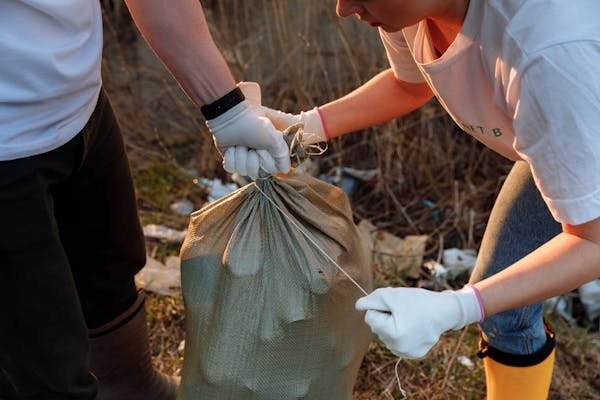Discussion on the concern of food waste disposal
A concise examination of food waste disposal highlights the environmental and economic implications, urging better management practices to minimize waste and promote sustainability.
Top quality BNL Food Waste Disposal Services
Introduction to BNL Food Waste Disposal Services
In an era where sustainability and environmental responsibility have taken centre stage, food waste disposal has emerged as a critical challenge for both households and businesses. Enter BNL food waste disposal services, a pioneering company dedicated to transforming the way we handle organic waste. With an innovative approach that prioritizes eco-friendliness and efficiency, BNL stands at the forefront of sustainable waste management solutions.
Founded on the principles of reducing landfill contributions and promoting recycling of organic materials, BNL provides comprehensive food waste disposal services aimed at minimizing environmental impact while maximizing resource recovery. By collaborating with local restaurants, grocery stores, municipalities, and households alike, BNL implements state-of-the-art collection methods and cutting-edge composting technologies that facilitate proper disposal—ensuring that valuable nutrients are returned to the soil rather than lost in landfills.
With a commitment to transparency and customer education, BNL not only handles food waste effectively but also empowers its clients through guidance on best practices for minimization strategies. As part of a growing movement towards zero-waste initiatives across various sectors, BNL Food Waste Disposal Services is making waves by setting new standards in responsible waste management while contributing actively to community well-being.
Join us as we explore how BNL is redefining food waste disposal.
Understanding Food Waste
Definition and dangers of food waste
Food waste refers to the discard of edible substances, leading to significant environmental impacts, economic losses, and ethical concerns related to resource distribution and hunger.
Implications towards the environment
The environmental implications encompass the effects of human activities on ecosystems, including pollution, habitat destruction, and climate change impact crucial for sustainable future planning.
How to correct disposal can help reduce these threats?
Proper disposal of waste minimizes environmental hazards, preventing pollution and protecting ecosystems. By responsibly managing refuse, we can significantly lessen harmful impacts on health and nature.
Our Commitment to a Sustainable Environment
BNL’s commitment to eco-friendliness
BNL is dedicated to sustainable practices, promoting environmental responsibility through innovative solutions and initiatives aimed at reducing ecological impact in all operations.
Mission and vision in providing eco-friendly solutions
Our goal is to deliver sustainable solutions that prioritize environmental health, fostering a greener future through innovative practices and community engagement for lasting impact.
BNL’s Range of Food Waste Disposal Services
Highlighting the importance of proper food waste disposal
Proper food waste disposal is crucial for environmental sustainability, reducing landfill overflow, minimizing greenhouse gas emissions, and promoting recycling and composting practices within communities.
List of BNL’s top-quality food waste disposal services
Explore BNL’s premier food waste disposal services, renowned for their excellence and reliability in managing organic waste efficiently while promoting sustainable practices.
Detailed overview of each service
A comprehensive examination of every service provided ensures clarity, highlighting features, benefits, and unique aspects. This overview enhances understanding and facilitates informed decision-making for users.
How BNL Ensures Efficiency in Their Services
Demonstration of proven results from previous client experiences
Showcasing successful outcomes from past client interactions illustrates our ability to deliver effective solutions and build trust through tangible evidence of our achievements.
Explanation of the efficiency of BNL services
BNL services are highly efficient, streamlining operations and enhancing productivity. Their innovative solutions meet client needs, ensuring timely delivery and exceptional support for users.
Emphasis on time and cost savings
Focusing on efficiency leads to significant reductions in both time and expenses, enhancing productivity while allowing resources to be allocated more effectively.
Eco-Friendliness of BNL’s Food Waste Disposal Services
Explanation of sustainable food waste disposal practices
Sustainable food waste disposal practices involve composting, recycling, and minimizing waste generation. These methods enhance resource efficiency while reducing environmental impact and promoting ecological balance.
How BNL’s services adhere to eco-friendly standards
BNL’s services prioritize eco-friendly standards by adopting sustainable practices, reducing waste, utilizing renewable resources, and implementing energy-efficient technologies to protect the environment effectively.
BNL’s contribution to environmental preservation
BNL actively engages in initiatives aimed at protecting the environment, focusing on sustainable practices, research innovation, and collaboration to promote ecological conservation efforts globally.
Benefits of Choosing BNL’s Food Waste Disposal Services
Outlining the advantages of BNL’s services
BNL’s services offer streamlined solutions, exceptional customer support, cost efficiency, innovative technology integration, customized approaches, reliable results, and enhanced operational effectiveness for diverse client needs.
Testimonials of satisfied clients
Client testimonials highlight the positive experiences and satisfaction of individuals who have utilized our services, showcasing trust, reliability, and successful outcomes in their journeys.
Explaining how BNL services go beyond just disposal
BNL offers comprehensive services that not only manage waste disposal but also prioritize sustainability, recycling initiatives, and consultation to enhance environmental responsibility.
Encouraging Mindful Disposal of Food Waste
Importance of every individual’s role in reducing food waste
Every individual plays a crucial role in minimizing food waste by making mindful choices, fostering sustainable habits, and promoting awareness about the impact on our environment.
Compelling readers to act responsibly in disposing of food waste
Encouraging individuals to responsibly manage food waste fosters environmental sustainability, reduces landfill overload, and promotes healthier communities by advocating for mindful disposal practices. Act wisely!
Persuading individuals to choose BTL’s services for a greener approach
Encouraging people to select BNL’s services promotes an eco-friendly strategy, highlighting their commitment to sustainability and environmental responsibility for a better future.
Summarizing the Need for BNL’s Services
Recap of the blog’s points
This blog summarizes its main arguments, reviewing key concepts and insights while highlighting essential takeaways to reinforce understanding and encourage further exploration of the topic.
Restating BNL’s commitment and offerings
BNL reaffirms its dedication to providing exceptional services and solutions, emphasizing a steadfast commitment to meeting customer needs through innovative and reliable offerings.
Conclusion
Food waste disposal in Singapore is an essential issue in managing the city-state’s sustainability efforts. With growing awareness of environmental impact and resource conservation, the country has taken significant steps to reduce food waste through initiatives such as food recycling programs, community efforts, and promoting responsible consumption. Residents and businesses alike are encouraged to adopt better disposal practices, like separating food waste for recycling and reducing excess waste through mindful purchasing. Continued efforts in innovation, education, and infrastructure will further contribute to minimizing food waste, ensuring Singapore remains a leader in sustainability and environmental responsibility.
How do I get rid of kitchen food waste?
To eliminate kitchen food waste, consider composting scraps, planning meals carefully, storing food correctly, using leftovers creatively, and donating excess products to local charities.
How do you get rid of large amounts of food waste?
To reduce significant food waste, consider composting leftovers, donating excess food to shelters, meal planning, and buying only necessary items to minimize surplus.
What counts as food waste?
Food waste includes discarded edible food, leftovers, spoiled items, and inedible parts like peels. It encompasses both consumer and producer-generated waste throughout the supply chain.
What are the four types of food waste?
The four types of food waste include avoidance waste, disposal waste, retail waste, and industrial waste, each representing different stages in the food supply chain.








